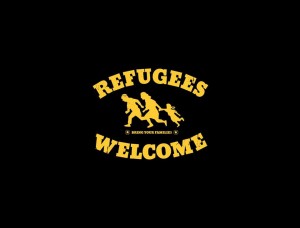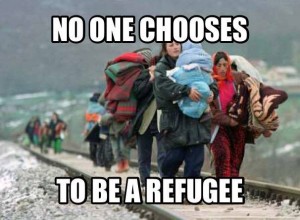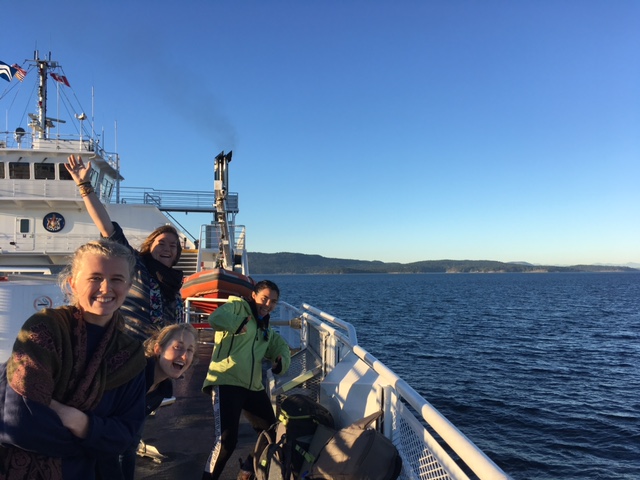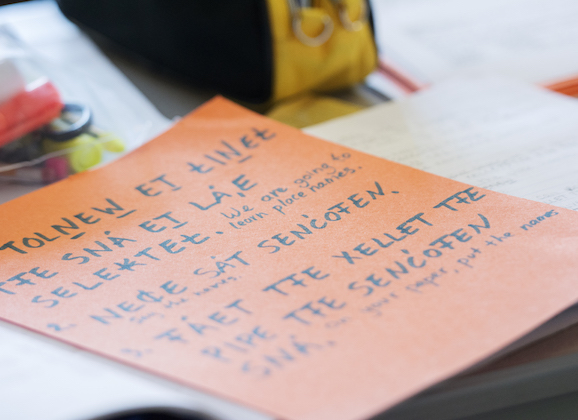How to build a Sanctuary City
Sanctuary City [noun]
“A Sanctuary City is a city where all residents, regardless of immigration status, can access services, including education, health services, childcare, parks & recreation programs, food banks, shelters, and more. It is a city where residents do not have to fear deportation or incarceration for simply existing.”
(Refugees Welcome Victoria)
 A city where all residents can live without fear because no one is going to ask and no one is going to tell. That’s the ground rule for Sanctuary Cities: The institutions are either not allowed to ask the customer about their immigration status and/or are not allowed to report to the border agency if the person is undocumented. Because who can decide if you’re “undocumented?” Are you illegal because you are at a certain place? Is your existence illegal?
A city where all residents can live without fear because no one is going to ask and no one is going to tell. That’s the ground rule for Sanctuary Cities: The institutions are either not allowed to ask the customer about their immigration status and/or are not allowed to report to the border agency if the person is undocumented. Because who can decide if you’re “undocumented?” Are you illegal because you are at a certain place? Is your existence illegal?
The newly-founded group Refugees Welcome Victoria/Lekwungen Territory asked and tried to answer these questions on Saturday, November 28, at the Activist Assembly which took place here on campus.
Throughout the day, speakers from different areas talked about education, climate change and diversity. In between, the visitors could participate in smaller workshops. For example, I took part in “How To Build A Sanctuary City.” As you might know from my last post about the refugee crisis, migration and the rights of refugees are important topics for me.
Refugees Welcome Victoria/Lekwungen Territory started an initiative to turn Victoria into a Sanctuary City. Even though the government is highly involved in making the official rules, such a movement has to start among the people. Otherwise, you end up in a situation like Toronto.
Yes, Toronto is officially Canada’s first Sanctuary City but unfortunately that does not mean that it is also implemented. A recent investigation showed that the police still ask not only criminals but victims and witnesses about their immigration status. To get that right, immigration status does not equal identity. Even without valid immigration documents, you still have a passport and therefore an identity. And that should be the only thing the police care about when trying to solve a crime, especially when the immigrant is a witness or even the victim of a crime. Assuring everyone that they do not have to fear deportation when calling the police gives everyone the possibility to live in safety.
 Next to this example, other areas were examined during the workshop. What about education? Or health services? Can we deny a child medication just because a piece of paper expired? Can we punish doctors who treat undocumented citizens even though all doctors take a Hippocratic oath that they will help whenever they can?
Next to this example, other areas were examined during the workshop. What about education? Or health services? Can we deny a child medication just because a piece of paper expired? Can we punish doctors who treat undocumented citizens even though all doctors take a Hippocratic oath that they will help whenever they can?
Because this is actually happening. If doctors are treating an illegal immigrant, they risk losing their license. The only exceptions are things like the temporary stop-gap clinic that was installed by midwives in Vancouver. It was open for everyone – regardless if the patients could prove MSP (Medical Service Plan of British Columbia) coverage or not. However, this is no long-term solution. Therefore undocumented citizens have limited options because even the doctors who want to treat them can’t advertise doing so.
And something like this does not exist in Victoria. In addition, it is still a long way to go until we will see something like a Sanctuary City here because another challenge is the 13 municipalities that make up Victoria. That means all of them can have their own rules for public institutions and need to unanimously agree with the idea.
The first step in this direction might be to raise awareness that something like this is possible at all. So if you’re interested in learning more about the issue or getting involved with the movement, join the Refugees Welcome – Victoria/Lekwungen Territory Facebook group or contact them with your questions via e-mail (refugee.justice.victoria@gmail.com).
In case you were wondering why the group mentions “Lekwungen Territory” so explicitly in their title, here is another interesting thing to think about: The Canadian civilization is built on stolen land. European settlers enforced artificial borders on indigenous lands, introducing a system of documented/undocumented and exclusion. Do we even have the right to decide who is legal or illegal here?



